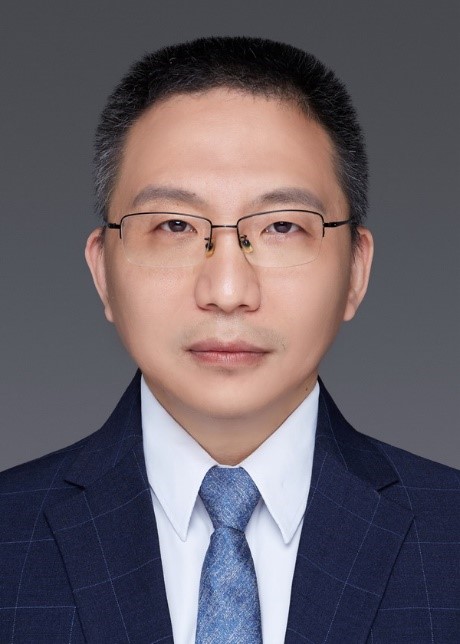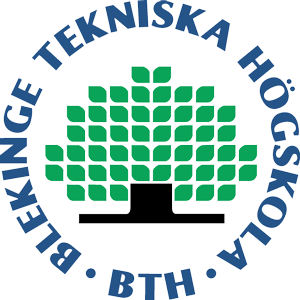Keynote talk #1
Title: NFV for 5G and beyond: current state and technology trends
Speaker: Dr. Joan Triay, Network Architect and Manager
Organization: DOCOMO Euro-Labs
 Bio:
Bio:
Dr. Joan Triay is a network architect and manager at DOCOMO Euro-Labs, in Munich, Germany, which he joined in 2012, and where he is currently involved in standardization and development activities spanning different areas such as network virtualization, mobile communication networks, and 5G network management and orchestration. Before joining DOCOMO Euro-Labs, Joan had been a visiting fellow at the University of Essex, UK (2009-2010) and a visiting researcher at the University of Massachusetts, Dartmouth (2010-2011) sponsored by a Fulbright fellowship. Joan is currently serving as the Technical Manager of ETSI NFV, a standardization group that he joined as a delegate from the very beginning (2013), and in which he has been participating actively in developing the NFV concepts and standards. Joan holds an M.Eng. in Telecommunications Engineering (2006), an M.Sc., and Ph.D. in Telematics Engineering (Computer Networks) (2007 and 2011, respectively) all from Universitat Politècnica de Catalunya (UPC), BarcelonaTech, Spain.
Abstract:
Network Functions Virtualisation (NFV) concepts, technologies, and specified frameworks have had a tremendous influence in enabling software-based networks to become, not only a reality, but almost a norm in the development, deployment, and operation of 4G and 5G networks. While NFV is being adopted by network operators and suppliers, in turn, NFV embraces other well-known upstream technologies such as compute and network virtualization and new methodologies and concepts such as Cloudification. Hence, as technologies evolve or new ones emerge, so does NFV. In this keynote presentation, we will assess the current state of NFV technologies and standardization activities, with a focus on its applicability to 5G. In addition, in the presentation, we will introduce the challenges and technology trends that could play a key role in how NFV might evolve and adapt to become one of the main ingredients for developing beyond 5G/6G networks.
Keynote talk #2
Title: Securing software-driven networks: threats and opportunities
Speaker: Dr. Georgios Gardikis, R&D Manager
Organization: Space Hellas S.A., Greece
 Bio:
Bio:
Dr. Georgios Gardikis holds a Dipl.Eng. (2000) and a PhD (2004) in Electrical and Computer Engineering from the National Technical University of Athens. He is currently R&D Manager at Space Hellas S.A., supervising the company’s research and development activities. For over 20 years, he has been actively involved in several national and EU-funded R&D projects, mostly in the ICT and Security domains. He is the coordinator of the EDIDP “PANDORA” project on a next-generation cyber-defense platform, also having served as Project Coordinator for the H2020 SHIELD project on Big Data for cybersecurity and ESA CloudSat study on satellite software-defined networks. Dr. Gardikis is a Senior Member of the IEEE/Communications and Broadcast Technology Societies and a Member of the Technical Chamber of Greece, also holding the PMP (Project Management Professional) certification. He is the author or co-author of more than 70 publications in international journals and refereed conferences/workshops.
Abstract:
In addition to their obvious technical and business value, software-driven networks are accompanied by various side-effects, one of the most important of which is the drastic increase in the attack surface compared to legacy network infrastructures. At the same time, the agility and reconfigurability of NFV/SDN networks enable novel security control mechanisms, such as dynamic traffic steering and on-the-fly deployment of security appliances. The ambition of this keynote is to highlight the security-related threats and opportunities of software-driven networks and stimulate a discussion on the most promising research directions in the domain.
Keynote talk #3
Title: Knowledge-defined Network Virtualization: When Programmable Data Plane meets Artificial Intelligence
Speaker: Zuqing Zhu, Professor in Electrical Engineering and Information Science
Organization: University of Science and Technology of China, Hefei, China
 Bio:
Bio:
Zuqing Zhu received his Ph.D. degree from the Department of Electrical and Computer Engineering, University of California, Davis, in 2007. From 2007 to 2011, he worked in the Service Provider Technology Group of Cisco Systems, San Jose, California, as a Senior Engineer. In January 2011, he joined the University of Science and Technology of China, where he currently is a Full Professor. He has published more than 300 papers in peer-reviewed journals and conferences. He is an editorial board member of IEEE Communications Magazine, IEEE Transactions on Network and Service Management, Optics Express, Optical Switching and Networking, and others. He is a Steering Committee Member of the IEEE International Conference on High-Performance Switching and Routing (HPSR), a Distinguished Lecturer of the IEEE Communications Society (ComSoc), and the Vice-Chair of the Technical Committee on Optical Networking (ONTC) in ComSoc. He has received the Best Paper Awards from ICC 2013, GLOBECOM 2013, ICNC 2014, ICC 2015, and ONDM 2018. He is a Senior Member of IEEE and a Senior Member of OSA.
Abstract:
In this talk, we discuss recent advances on the network slicing technologies for effectively supporting emerging applications such as high-definition video streaming, virtual reality, remote surgery, etc, in future networks. Specifically, in order to satisfy the stringent quality-of-service (QoS) requirements of such applications, one needs innovation in at least three aspects, i.e., the data plane, virtualization layer, and control plane. For the data plane, we introduce the programmable data plane (PDP) techniques that can make packet processing and forwarding protocol-independent. Hence, PDP enables improved programmability, flexibility, and application-awareness in substrate networks, which are the fundamental elements of network slicing. The virtualization layer needs to virtualize, allocate and isolate the resources in the substrate network to build virtual network slices according to applications’ QoS demands. Here, we discuss the open-source platforms to make the virtualization layer work seamlessly with PDP. Finally, the control plane needs to be adaptive for dynamic slicing. Therefore, we consider how to implement a smart control plane by leveraging artificial intelligence (AI), which can analyze telemetry data from the data plane, and make smart and timely decisions to support various applications well.






